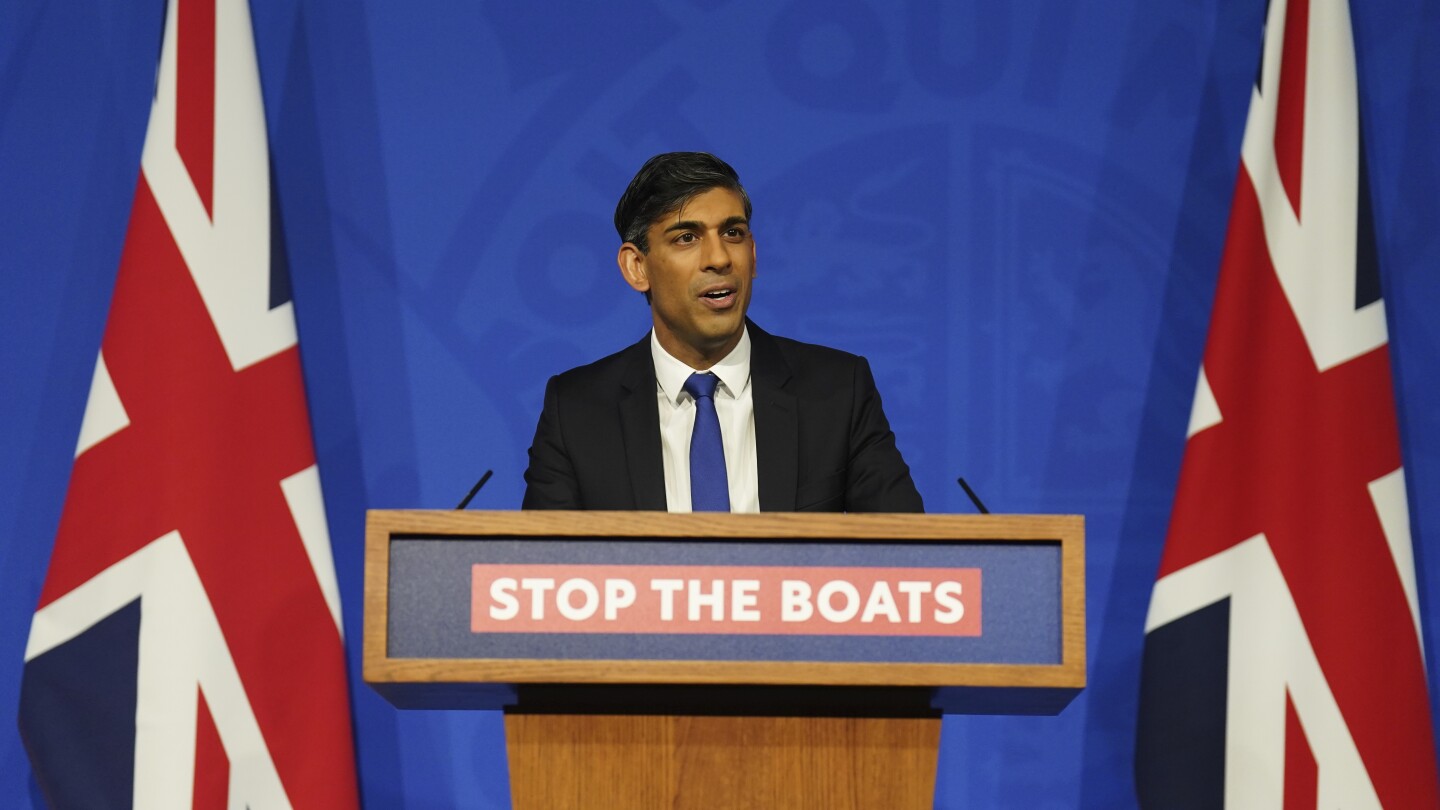LONDON (AP) — Prime Minister Rishi Sunak was under pressure Friday to explain why Britain has paid Rwanda 240 million pounds ($300 million) as part of a blocked asylum plan, without a single person being sent to the East African country.
The total is almost twice the 140 million pounds that Britain previously said it had handed to the Rwandan government under a deal struck in April 2022. Under the agreement, migrants who reach Britain across the English Channel would be sent to Rwanda, where their asylum claims would be processed and, if successful, they would stay.
The plan was challenged in U.K. courts, and no flights to Rwanda have taken off. Last month, Britain’s Supreme Court ruled the policy was illegal because Rwanda isn’t a safe country for refugees.
Despite the ruling and the mounting cost, Sunak has pledged to press on with the plan.
The Home Office said it had paid a further 100 million pounds to Rwanda in the 2023-24 financial year and expects to hand over 50 million pounds more in the coming 12 months.
Junior Immigration Minister Tom Pursglove defended the cost, saying the money would ensure “all of the right infrastructure to support the partnership is in place.”
“Part of that money is helpful in making sure that we can respond to the issues properly that the Supreme Court raised,” he said.
The opposition Liberal Democrats said it was “an unforgivable waste of taxpayers’ money.”
The Rwanda plan is central to the U.K. government’s self-imposed goal to stop unauthorized asylum-seekers from trying to reach England from France in small boats. More than 29,000 people have done so this year, compared to 46,000 in 2022.
Since the Supreme Court ruling, Britain and Rwanda have signed a treaty pledging to strengthen protections for migrants. Sunak’s government argues that the treaty allows it to pass a law declaring Rwanda a safe destination.
The law, if approved by Parliament, would allow the government to “disapply” sections of U.K. human rights law when it comes to Rwanda-related asylum claims and make it harder to challenge the deportations in court.
The bill, which has its first vote scheduled in the House of Commons on Tuesday, has roiled the governing Conservative Party, which is trailing the Labour opposition in opinion polls, with an election due in the next year.
It faces opposition from centrist Conservative lawmakers who worry about Britain breaching its human rights obligations. Former Conservative Solicitor-General Edward Garnier said the bill was “trying to define things when there is no evidence, or no safe evidence, for that being the case.”
He told the BBC that changing the law to declare Rwanda a safe haven is “rather like a bill which says that Parliament has decided that all dogs are cats.”
But the bigger danger for Sunak comes from Conservatives on the party’s authoritarian right wing that views curbing immigration as essential to the government’s pledge to “take back control” now that Britain has left the European Union. They think the bill is too mild and want the U.K. to leave the European Convention on Human Rights. Almost every European country, apart from Russia and Belarus, is bound by the convention and its court.
Immigration Minister Robert Jenrick piled pressure on the prime minister when he quit the government this week, saying the bill did not go far enough.
Sunak insists the bill goes as far as the government can without scuttling the deal because Rwanda will pull out of the agreement if the U.K. breaks international law.
The party differences erupted on social media after the party posted an attack ad aimed at Labour, using an image of a BBC presenter caught making a rude gesture to camera this week.
While some Tory lawmakers retweeted the middle-finger image approvingly on X, formerly known as Twitter, others called it crass.
“Amazed this has not – despite requests – been taken down, it is beneath us,” Conservative legislator Alicia Kearns posted.
___
Follow AP’s coverage of migration issues at https://apnews.com/hub/migration

